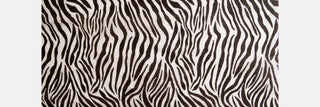In the realm of psychology, few thought experiments have captured the imagination quite like the "Zebra Question." This intriguing mental puzzle, which asks individuals to interpret a simple statement involving a zebra, offers profound insights into how humans process information, make decisions, and perceive reality. Understanding the Zebra Question not only sheds light on our cognitive biases but also reveals the complex interplay between logic and emotion in human behaviour.
What is the Zebra Question?
The Zebra Question can take various forms, but one popular version asks: "If you see a zebra with a polka-dotted pattern, does that make it a zebra or a polka-dotted animal?" This question invites participants to grapple with their definitions, categorisation processes, and the rationale behind their conclusions. It serves as a metaphorical canvas upon which we can explore broader themes in psychology, particularly regarding perception, classification, and the impact of preconceived notions.
Psychological Insights on Perception
At its core, the Zebra Question illuminates how our perceptions are influenced by existing knowledge and cognitive biases. According to cognitive psychology, people tend to lean on schemas—mental structures that help us organise and interpret information. When presented with the concept of a "zebra," individuals draw upon their past experiences and societal norms, defining the animal based on its stripes. The introduction of polka dots challenges these preconceptions, forcing a reevaluation of previously held beliefs.
This cognitive dissonance can elicit various emotional responses. Some may feel confusion as they try to reconcile the discrepancy between the familiar concept of a zebra and the unexpected polka-dot imagery. Others may experience a sense of amusement or creativity, perhaps interpreting the animal in a more abstract or playful manner. This illustrates the two-fold nature of perception: it is both a rational process and an emotive response.
Classification and the Role of Categorisation
The Zebra Question also raises pertinent questions about classification—the cognitive process by which we group objects based on shared characteristics. In psychology, classification is essential for efficient information processing. However, it can also lead to rigid thinking patterns. The challenge introduced by the polka-dotted zebra prompts individuals to reassess their classification strategies. Are they open-minded enough to redefine what constitutes a zebra, or do they cling to traditional definitions despite contradictory evidence?
This notion of flexibility in thought is closely tied to psychological theories of creativity. Carl Jung posited that creativity arises from the ability to connect disparate ideas. The Zebra Question serves as an exercise in creative thinking; those who can distinguish the zebra despite its polka dots are likely more adept at thinking outside the box. This adaptability is essential in an ever-evolving world where innovation often requires breaking free from conventional classifications.
Cognitive Biases and Decision-Making
Understanding the Zebra Question can also lead to a deeper awareness of cognitive biases that affect decision-making. For instance, the confirmation bias may lead individuals to dismiss polka dots as irrelevant, clinging solely to their established definition of a zebra. Conversely, those who explore the implications of this altered creature may exhibit an openness to new ideas, reflecting a willingness to adapt their mental frameworks.
One particularly relevant bias in the context of the Zebra Question is the framing effect. How the question is posed can significantly influence responses. When framed to emphasise the uniqueness of the polka-dotted zebra, participants may be more open to considering it as a form of a zebra. This highlights the importance of language and context in shaping our perceptions and subsequent decisions.
Conclusion
The Zebra Question, while seemingly simple, serves as a powerful tool for examining the intricacies of human psychology and perception. Through this thought experiment, we gain valuable insights into how we process information, classify experiences, and navigate cognitive biases. As we engage with questions that challenge our preconceptions, we cultivate a more profound understanding of ourselves and the psychological mechanisms that shape our reality. In a world where adaptability and open-mindedness are crucial, exploring concepts like the Zebra Question can help us redefine our thinking and embrace the unexpected.

















